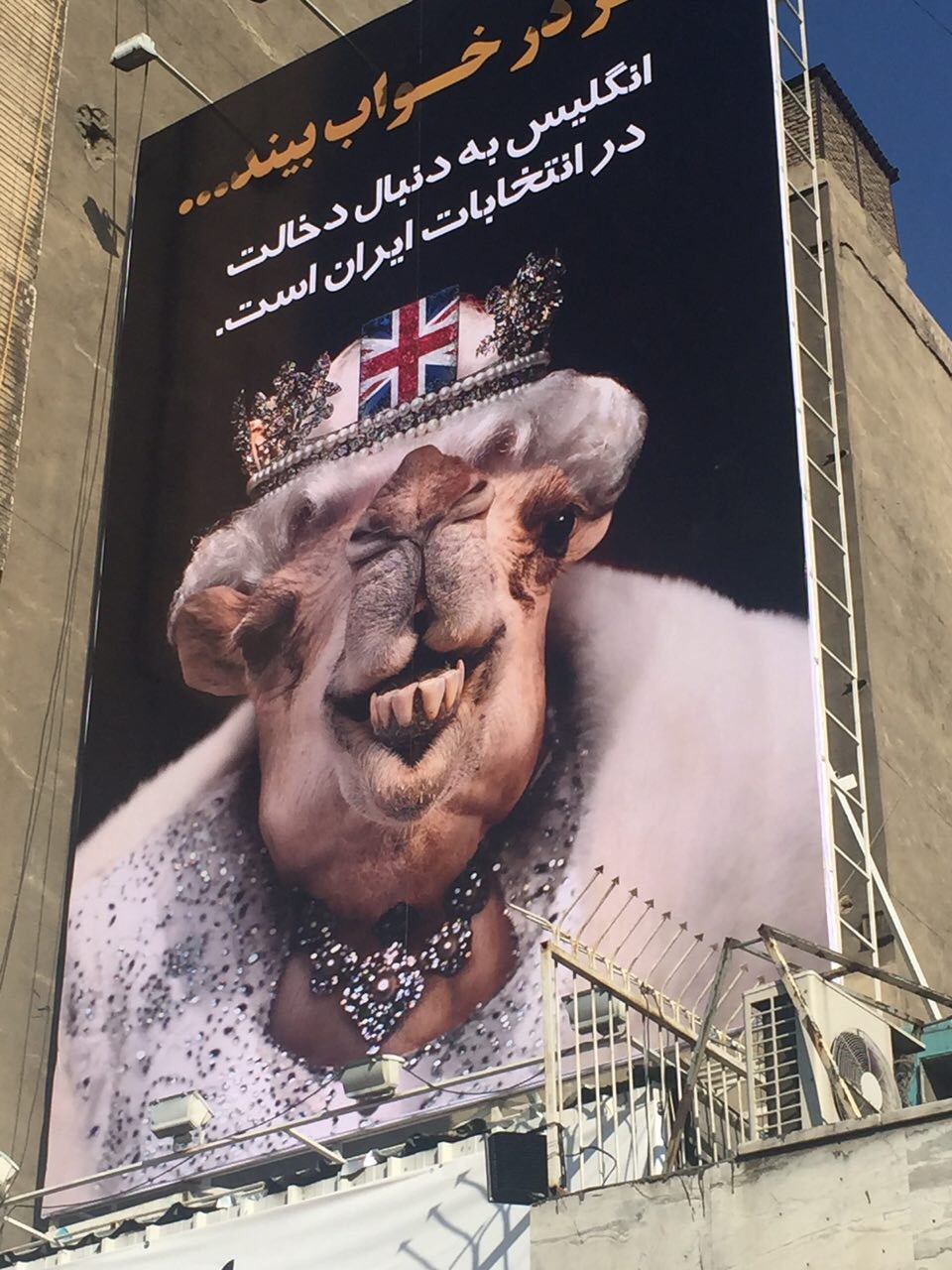Like this article? rabble is reader-supported journalism. Chip in to keep stories like these coming.
Election fever is in the air.
Iranians across the country are coming out in droves to cast their ballots today in this year’s parliamentary and Assembly of Experts polls. Long queues fill the streets, social media is bursting with lively debate and campaign videos, and polls are predicting a record-high 70 per cent voter turnout. It’s a climate in stark contrast with the last parliamentary and assembly elections in 2010.
Why is there so much more interest this time around?
These elections are the first to take place in Iran after the U.S.-Iran nuclear deal and their outcome has the potential to change the political landscape of Iran over the next decade.
Here are four things Canadians need to know about the Iran elections:
1. Reformists and Conservatives are locked in a bid for greater influence — and the outcome could impact Iran’s relationship with the West.
The Iranian Parliament, or Majlis, has been dominated almost entirely by MPs from the principalist, or conservative faction since parliamentary elections in 2010 (principalist is a reference to this factions loyalty to the principles of the 1979 Islamic revolution).
If a reformist alliance backed by current moderate President Hassan Rouhani secures a majority, Rouhani’s current track record of friendly rapprochement with western nations will withstand a better chance of continuing unabated.
But if the principalists retain their majority, current policies could change considerably, says Amir Khaleghiyan, a researcher at the Iranian Institute of Social and Cultural Studies in Tehran.
“Then they would [focus on] fostering overarching regional goals and supporting the ‘resistance axis’ to uproot Islamic State. They also may prepare to set out a new front against Israel.” Internally, the principalists would focus on what they call “systematic corruption” and fostering Indigenous economic growth, he adds.
There have been several signs of rather bold moves on part of the principalists to avoid losing their current stronghold in Parliament, most notably the surprising decision to ban Hassan Khomeini, the widely respected grandson of late revolutionary leader Ayatollah Ruhollah Khomeini, from running as a candidate for the Assembly of Experts.
The Guardian Council, a half-elected and half-appointed judicial body that monitors the elections, said Khomeini lacked the “Islamic knowledge to distinguish the next supreme leader.” Upon hearing this, Khomeini’s key ally, the infamous reformist-leaning former President Ayatollah Ali Akbar Hashemi Rafsanjani was furious. “They excluded the most-similar person to Imam Khomeini: his grandson,” he said to conservatives earlier this month at a public ceremony. “Who gave you the right?”
2. The newly elected assembly will likely choose the next supreme leader in the Islamic Republic’s history.
The Assembly of Expert’s sole function is to appoint and monitor the Supreme Leader until they dies or are unable to carry out their duties; hence the 88-member body has been largely idle for almost three decades.
Not so this time.
Given the current Supreme Leader Ayatollah Ali Khamenei’s advanced age of 77, it has been widely predicted that the next Assembly of Experts, which serves over eight years, will actually appoint Khamenei’s successor. This prospect makes the upcoming vote more meaningful than normal, both for Iranians and Western powers. Iran’s Supreme Leader, remember, has final say on all matters of religion and state.
3. Iran internally is ripe for change — but nothing too dramatic.
The crushing government response to the disputed 2009 presidential elections — when thousands took to the streets to protest what they believed were rigged results and many journalists, activists and politicians were jailed — is still lies fresh in Iranian’s minds.
Whereas in 2009, reformists openly called for personal freedoms and gender equality, their demands are now far more modest -– perhaps the key being to avoid being outlawed as a political force entirely.
They’ve also been watching the regional chaos around their borders. From Libya and Egypt to Iraq and Syria, it is fairly clear that large-scale, Arab Spring-style uprisings have been poor models of success.
Patience is key: “Iranians are interested in change… But gradual change. It will take years to play out,” notes Nader Hashemi, a Canadian professor of Middle East Studies at the University of Denver.
4. Once the Great Satan, always the Great Satan.
While anti-Western rhetoric has largely toned down in Iran over the last three decades, it’s clear some things will never change. A massive poster created by Principalists has been plastered in downtown Tehran, and depicts Queen Elizabeth as a camel on a throne, illustrating a famous Iranian proverb about day-dreaming.
The proverb is roughly translated as: “The camel during its sleep is dreaming that it has access to lots of delicious food and eats it… all the while, it’s a false dream.” Lest the image fails to resonate, the white text beneath the proverb adds: “Britain is seeking to interfere in Iran’s elections.”
Confusing? It can be. Until you consider all the heat the BBC Persian Service has been under lately for allegedly producing news content that “encourages Iranians not to vote for certain candidates.”
“The Iranian people have had a very negative perception of Britain’s deceitful rulers over the past years and decades… So much so that whatever they hear from the British, they would do the reverse,” a senior Iranian judiciary spokesman Gholam Hussein Mohseni Ejei told voters earlier this week.
Shenaz is a former producer and writer with Al Jazeera English, BBC News, and CBC Television. Her writing has appeared in The Globe and Mail, The Toronto Star, The Guardian, Foreign Policy, The Huffington Post, Timeline, rabble.ca and Muftah magazine. She holds an MA degree in Near and Middle Eastern Studies from the School of Oriental and African Studies in the U.K. and she teaches journalism at Humber College. Visit her website shenazkermalli.com or follow her on Twitter @mskermalli.
Photo: Amir Khaleghiyan



